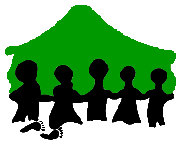Place of origin: Baguia, Bacau
Running away to Dili
‘My parents died when I was small and I went to live with my aunt. But I felt that they didn’t want me. When I was about fourteen, I decided to run away from home to Dili. I got on a bus to Dili although I had no money even for a fare. When they asked for a fare I just cried.
I didn’t know anyone in Dili. The first night I decided to sleep at the Becora bus station. The next day a soldier found me there. He said he would take me to Yakin institution. I decided to go because I didn’t have any other ideas about what I should do.
At Yakin I met lots of other children. They came from many places a long way from Dili— Lospalos, Viqueque, Same and Manatuto. I didn’t talk much with the other children because I couldn’t speak much Indonesian.
I heard that sixteen children were going to be sent by Yakin to Ujung Pandang, [1] in South Sulawesi. The children were about eight years and older. The soldier who found me suggested that I should go with them. I decided to go. I thought it was better to suffer in a faraway place than my own country, but I didn’t really understand what I was agreeing to. So I stayed for only one day at Yakin before I left by boat for Ujang Pandang. It was just a few days after the Santa Cruz massacre on 12 November 1991. An East Timorese from Same took us on the boat.
Sent to Ujung Pandang
When we arrived in Ujung Pandang we were taken straight to the Darul Istiqomah Pesantren in Maros, Maccopa, about 25 km from Ujung Pandang. There were already many children from East Timor living there, over 50. After one month we started going to school. We were given clothes and had a strict routine that we had to follow.
We got up at 4 am to say morning prayers and have breakfast, then we went to the school located in the complex. After lunch we returned to study the Koran for several hours. Then we had time for a break and bath. After that we prayed and studied the Koran for one more hour, till 8 pm. Then we had dinner and we did our homework until 10 pm. At first I found it difficult to study the Koran because I was a Christian. But eventually I could master it.
Move to Al-Anshar Institution
In 1995 Mohammad Johari set up Yayasan Al-Anshar for East Timorese coming to Sulawesi to live together. After that the financial help that used to come to Maccopa Pesantren for East Timorese students went instead to Al-Anshar. Those of us still in Maccopah had to drop out of school and we didn’t always have enough to eat. We had to work to get money. We worked in the gardens of some people who wanted to help us by picking coffee cinnamon and chocolate. After living for four years in Maccopah, eventually I moved to Al-Anshar, and then I started going to school again.
But life was not easy at Al-Anshar. We didn’t have enough food and clothes. I was upset and angry, because I thought that Al-Anshar got enough money to provide for us. We used to get visits from people from local government, from military—Kostrad 433 and Kodam VII Wirabuana, from the big Bosowa factory and the Indofood SuperMie company. There was also money from the Japanese government. The discipline was very strict and we would get physically punished if we didn’t obey. There were over 100 boys and girls living at Al-Anshar. About thirty of them were children between the ages of six and fifteen.
Once some parents came from East Timor to visit because their children had written about how difficult it was living at Al-Anshar. They wanted to take their children back to East Timor, but Johari the organiser would not let them. He told them it was much better for the children to stay and complete their study in Sulawesi. Some other children begged the adults who visited to take them back home but the adults did not have enough money to pay the fares of the children. Johari told children who were only five or six years old that if they wanted to go home they would have to find the fares themselves. Some parents who came were surprised that their children had become Muslims. Everyone there had to be a Muslim and was given a Muslim name.
Finally I left Al-Anshar to live with East Timorese students who were studying in Ujung Pandang and in 1999 I they helped me to return to East Timor.
____________________________________________________
1. Ujung Pandang was the name used during the New Order period for Makassar.

